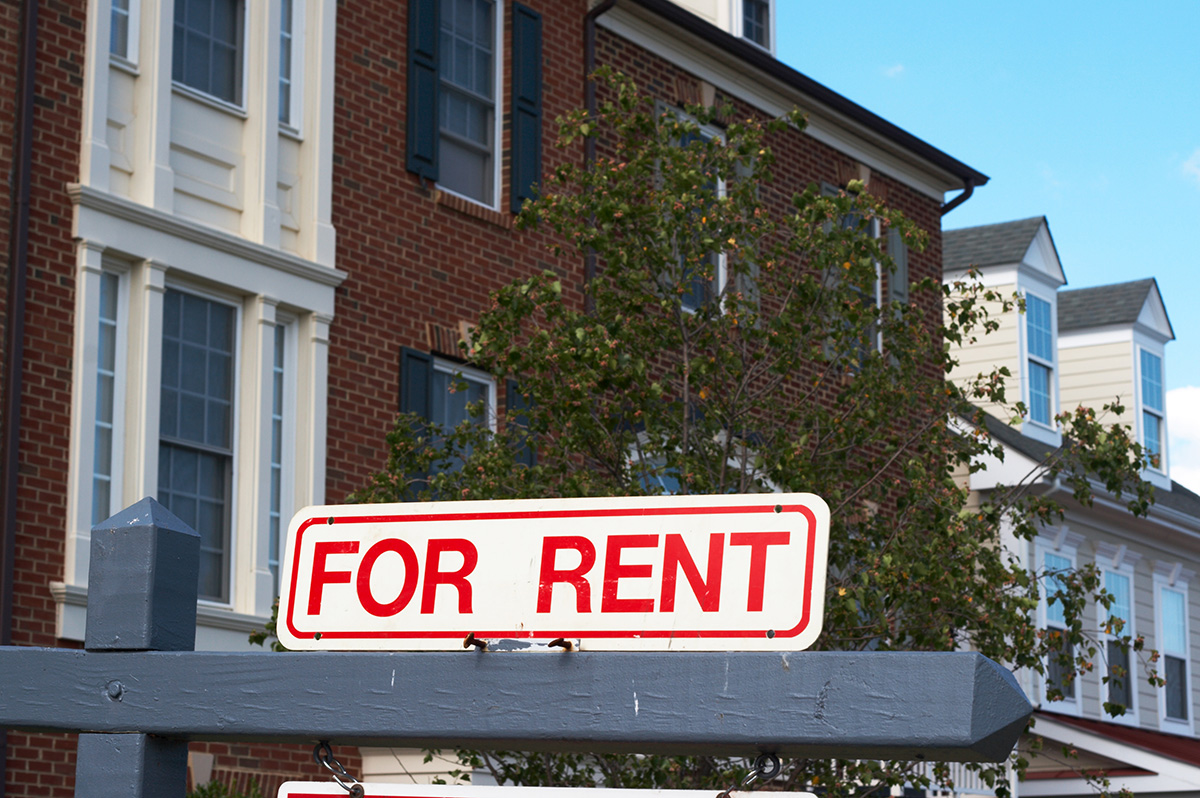Living
The LGBTQ generational wealth gap
Family rejection, inheritance exclusion contribute to problems

It’s no secret that LGBTQ+ people face a range of financial challenges that heterosexual people simply don’t need to contend with. Less discussed are the effects of financial discrimination on building LGBTQ+ generational wealth. The stereotypical view of a wealthy gay couple with no children and a sizable disposable income is just that — a stereotype.
In reality, the “American Dream”— buying a home, getting married, having kids, finding a good job and investing in a 401(k) — is out of reach for many LGBTQ+ people, according to a survey by TD Ameritrade. Almost two thirds (35 percent) of LGBTQ+ millennials say they are unlikely to achieve these goals by age 40, compared to fewer than half of straight millennials. The same survey found that while the average annual income for a straight household is $79,400, the average LGBTQ+ household earns just $66,200 a year.
LGBTQ+ people are being left out of generational wealth for many reasons including family rejection, systematic barriers and a lack of financial education. With almost half of LGBTQ+ adults saying they have been excluded by a family member or close friend as a result of their sexual orientation or gender identity, according to a study by the Pew Research Center, a lack of familial financial support is a common problem for many in the community.
This combination of unique financial barriers that LGBTQ+ people face is what has led to generational wealth gap. It’s a problem that will only affect more queer people if we don’t address it now.
Legacy financial exclusion
At every stage of life, it’s not uncommon for LGBTQ+ people to encounter financial challenges that their heterosexual counterparts won’t face. Being kicked out of their homes as teens due to unaccepting parents, not receiving financial support from family for college, being removed from an inheritance — the financial cost of being LGBTQ+ can be substantial.
With the average inheritance reaching close to $177,000 according to a HSBC survey and Cerulli Associates forecasting that up to $68 trillion will trickle down to younger generations within 25 years, LGBTQ+ heirs could collectively lose trillions through inheritance exclusion.
“Even much smaller amounts could help folks pay off debt, pay off a home, send their own kids to college and help them with their own retirement. Many LGBTQ+ kids aren’t getting these benefits,” explains John Auten-Schneider. Auten-Schneider is the co-owner of The Debt Free Guys blog and host of the Queer Money podcast, a leading gay money blog and podcast for the LGBTQ+ community run by him and his husband, David.
Raising a deposit for a house or apartment can be a difficult task for all people, but without financial support from family, many would not be able to fund a deposit. When David’s parents pass away, David’s sister will likely be inheriting upwards of $1,000,000. Yet, David says, he won’t receive any of this money, solely because he’s gay. “His parents have every right to do with their money what they want, but it’s a particular disappointment that they’ll do this only because he’s gay. This, of course, means we need to plan differently for our retirement than his sister does,” explains John.
Just because David and John are LGBTQ+ financial experts doesn’t mean they don’t deal with many of the same systematic challenges that impact other members of the community. Younger LGBTQ+ people also face challenges directly related to their sexuality or gender identity.
A disproportionately high number of young people experiencing homelessness identify as members of the LGBTQ+ community. According to research from the Williams Institute, between 20 percent and 45 percent of homeless youth identify as LGBTQ+. Lacking access to basic housing or financial support from family can set up a young person up for economic disadvantage before they even graduate from high school.
LGBTQ+ students also shoulder a larger student debt burden than their straight peers to the tune of an extra $16,000. “This has been attributed, in part, to LGBTQ+ college students assuming more debt simply to leave hostile home lives. In some cases, parents may forgo helping their queer children in favor of helping their straight children,” explains John.
Knowledge is power
At the start of 2020, Michigan-based Lexa VanDamme was at her financial rock bottom. Stuck at work after a 70-plus hour work week with no money in her bank account, bills due the next day and a broken down car, she decided to make a change. “I realized that I needed to face my financial situation,” says VanDamme. “I dove deep into the online world of personal finance to learn about budgeting, debt payoff methods, saving and investing.”
After her crash course in finance, VanDamme refinanced her credit card debt into a lower-rate personal loan, created a workable budget and started a side hustle to make extra income. There were a few bumps on her journey: “I actually cycled back into credit card debt three different times. I would pay it off, then eventually max it out a few months later,” says VanDamme. Still, she managed to pay off her debt by following the financial rules she had set for herself.
While trying to learn about personal finance on her own, VanDamme realized there was a need for accessible and relatable content that appealed to a wide range of people. She decided to create The Avocado Toast Budget (The ATB). Starting out as a blog just over a year ago, The ATB now counts more than 400,000 followers on Tiktok.
“For the longest time, the loudest voices in the personal finance community were cis, straight white males and, as a queer woman, I wanted to share information and tips that were often overlooked by those creators,” says VanDamme.
For many LGBTQ+ people like VanDamme, after spending so long hiding who she really was, she wanted to live as true to herself and be as free as possible. “This led to me ignoring my spending habits and being stuck in the paycheck-to-paycheck cycle. Airing my financial dirty laundry brought up similar feelings of anxiety and concern I felt when first coming out. How would people react? What would they think?” says VanDamme.
There is already a heavy stigma around talking about personal finances, especially when you may be struggling financially. “Since queer people often spend our lives fighting for the world to accept us and our queerness, we may be less apt to talk about our financial insecurities and struggles,” says VanDamme.
Genuine representation goes beyond just diversifying the financial content creators who receive media platforms, with the advice given by these experts also needing to be fully inclusive. “Advice tended to ignore how systems of oppression affect people of color, women, the LGBTQ+ community and more. We know statistically that it’s easier for some to build wealth than others,” she adds.
VanDamme has an ongoing series on Instagram focused on the intersectional nature of many financial issues. The series helps shed some light on the economic realities that often contributes to minority community challenges. From financial inequality that disproportionately impacts disabled people to wealth inequity and racism and the cycle of poverty, VanDamme works to educate her audience on pressing topics that matter to them.
“It’s especially important to talk about the financial challenges that trans people in our community face. This includes increased reports of lower wages, limited and more expensive housing options, and twice the rate of unemployment. This heavily impacts their ability to build wealth,” she explains.
Intersectional challenges
While being LGBTQ+ can underpin unique money issues, queer people of color and queer women often experience additional difficulties around financial matters.
In addition to the financial barriers faced by LGBTQ+ people, queer people of color also face a racial wealth gap. Employment discrimination, systematic inequalities and disparities in financial education all contribute to this unequal financial playing field.
According to research from the Federal Reserve, the average white family’s wealth is eight times higher than the wealth of an average Black family. The gender pay gap also contributes to excluding women from building generational wealth, according to the latest statistics compiled by Pew Research, which show that women earned 84 percent of what men earned in 2020.
Carmen Perez, creator of Make Real Cents, a personal finance blog dedicated to helping people achieve financial independence, believes it’s important to have experts who are more representative of the people they’re speaking to. “I heard a quote a while ago: ‘You can’t be what you can’t see.’ I think that’s really important because eventually, if you don’t have a model to follow, either you have to be the first, or it’s never going to happen,” she says.
As a woman of color and a lesbian, Perez knows firsthand how important it is to address the absence of representation in financial education. “It’s definitely one of the things we have to step back and look at in the LGBT community,” says Perez. “There’s a compounding effect because not only am I part of the LGBT community as a lesbian, but I’m also a minority, and I’m also a woman, and there’s a lot of hurdles up against a lot of folks in this space,” she adds.
With more than 60,000 people following her Make Real Cents account, Perez is playing a part in democratizing access to finance. There, she does everything from break down the cost of credit to explain 401(k) company matches with easy-to-read graphics and Insta stories. Her methods are a world away from the complexity of some traditional financial advisors and tools.
“Millennials are starting to change the money game because we’re delivering advice in a way that isn’t super technical. It can be so overwhelming to watch CNBC with all these screens and tickers that don’t mean anything to you personally,” says Perez.
Increased representation in the finance space means a light can be shone on vital issues, resulting in deeper conversations that make money less taboo. “We’re finding instances where historically people who have been locked out of the finance industry, by design, are speaking up. Unlike some traditional financial advisors that give out all this jargon and talk in all these terms that many may not understand,” says Perez.
Future generations
Despite the long-standing barriers facing LGBTQ+ people in gaining access to financial education and financial services, LGBTQ+ personal finance content creators now offer a way for many to improve their financial literacy in more convenient ways than ever before. While investing early and regularly is one of the most effective ways to secure a financially comfortable retirement, it’s never too late to build wealth and support for the next generation of LGBTQ+ people.
“[You can] create legacy wealth within the LGBTQ+ community by setting up your estate plan to donate to LGBTQ+ causes that will help homeless youth and [by] giving to local, younger LGBTQ+ folks you know personally,” adds John.
Negotiating the LGBTQ+ generational wealth gap is no small feat. But continuing the discussion around both financial literacy and taking steps to combat systematic financial issues can go a long way to address the financial challenges impacting the LGBTQ+ community.
“The stronger we are as LGBTQ+ individuals and allies, including our financial strength, the stronger we are as a community,” concludes John.
Finbarr Toesland is an award-winning journalist committed to illuminating vital LGBTQ+ stories and underreported issues. His journalism has been published by NBC News, BBC, Reuters, VICE, HuffPost, and The Telegraph.

Some vehicles age quietly — but not muscle cars.
For 2026, the Chevrolet Corvette tightens its focus, fixes one glaring flaw (the previously dowdy interior) and flaunts a futuristic design. The Dodge Charger, on the other hand, is loud and proud, daring you to ignore its presence at your peril.
CHEVROLET CORVETTE
$73,000-$92,000
MPG: 16 city/25 highway
0 to 60 mph: 2.8 seconds
Cargo space: 13 cu. ft.
PROS: Awesome acceleration. Race-car feel. Snazzy cabin.
CONS: No manual transmission. No rear seat. Tight storage.
Finally, the Chevrolet Corvette feels as good inside as it looks flying past you on the freeway. That’s thanks to the classy, completely redesigned cabin. Gone is the old, polarizing wall of buttons in favor of a sleeker, three-screen cockpit. There’s a large digital gauge cluster, a wide infotainment screen angled toward the driver, and a marvy new auxiliary display. Everything is modern and a bit glitzy — but in a good way.
Fit and finish are higher quality than before, and the controls are more intuitive. Chevy’s Performance App is now standard across trims, offering real-time data for drivers who enjoy metrics as much as momentum. And the new interior color schemes, including slick asymmetrical options, let you express yourself without screaming for attention—confidence, not obnoxious bluster.
As for handling, the steering is quick and sure, body control is exceptional, and acceleration is blazingly fast. A mid-engine layout also delivers sublime balance.
Three trim options, including the V8-powered Stingray, the E-Ray (also with a V8 but paired with electric all-wheel drive), and the Z06 and ZR1 variants for racing devotees.
(Note to self: For a truly mind-blowing experience, there’s the new 1,250-horsepower ZR1X all-electric supercar that goes from 0 to 60 mph in less that 2 seconds and is priced starting at $208,000.)
Yes, the ride in any of these Corvettes can be firm. And visibility is, well, rather compromised. But this supercar is a total Dom, not a timid sub. Think Alexander Skarsgard in “Pillion,” and you get the picture.
DODGE CHARGER

$52,000-$65,000
MPG: 16 city/26 highway
0 to 60 mph: 3.9 seconds
Cargo capacity: 22.75 cu. ft.
PROS: Choice of gas or EV power. Modern tech. Spacious cabin.
CONS: No V8 engine (yet). Soft steering. Less-than-lithe cornering.
Everything old is new again for the Dodge Charger. The automaker initially was phasing out gas-powered models in a shift to electric vehicles but then quickly pivoted back to include gas engines after yo-yo regulatory changes this year from, well, the yo-yos in the White House.
Powerful twin-turbo engines in the R/T and Scat Pack trims produce up to 550 horsepower. These models come standard with all-wheel drive but can be switched to rear-wheel drive for classic muscle-car antics when the mood strikes you.
At the same time, Dodge still offers the electric Charger Daytona, delivering up to 670 horsepower and ferocious straight-line acceleration.
The Charger’s aggressive design, massive digital displays and practical hatchback layout carry over, reinforcing its ability to be both a performance diva and everyday companion. With the larger-than-expected storage space, I appreciated being able to fit a boatload of groceries in the trunk during a Costco run.
New wheel designs, paint choices and trim variations help you visually distinguish between gas and electric Chargers. But no matter the model, each one feels decisive and deliberate on the road. Commuting in stop-and-go traffic during rush hour is fine, but this street machine excels at high-speed cruising on the freeway.
The turbo six-cylinder engine delivers muscular torque with less drama than the old V8s, but still with plenty of urgency. The electric Daytona version is a different kind of thrill, with its instant, silent thrust that feels like it could almost launch you to the moon.
Steering is stable but not exactly crisp, and the Charger’s weight makes it less lithe—and lively—than other muscle cars, especially when navigating tight corners.
But that’s just fine with me. Like Bea Arthur as Dorothy in “The Golden Girls,” this no-nonsense muscle car is proud to be big, bold and brassy.
Real Estate
Top buyer-friendly markets for the LGBTQ community
Home should be a place where you can be fully yourself

Buying or selling a home is one of the most meaningful financial and emotional decisions a person can make. For LGBTQ+ individuals and families, that journey can also come with unique considerations — from finding truly inclusive neighborhoods to working with professionals who understand and respect who you are.
The good news? Across the United States, there are increasingly buyer-friendly housing markets where LGBTQ+ home buyers and sellers can find opportunity, affordability, and community. When paired with the right representation, these markets can offer not only strong financial value, but peace of mind.
For more than 30 years, GayRealEstate.com has been the leading source of LGBTQ+ real estate representation, helping LGBTQ+ buyers and sellers connect with vetted, LGBTQ+ friendly real estate agents who understand the nuances of fair housing, legal protections, and inclusive service.
Below, we explore top buyer-friendly markets for the LGBTQ+ community, along with practical tips to help you navigate the process with confidence.
What Makes a Market Buyer-Friendly?
A buyer-friendly market isn’t just about lower prices — especially for LGBTQ+ home buyers. It often includes:
- Increased housing inventory (more choices, less pressure)
- Slower price growth or stabilized pricing
- Greater negotiating power for buyers
- Established or emerging LGBTQ+ communities
- Local protections and inclusive policies
- Access to LGBTQ+ friendly real estate agents and resources
Markets that combine affordability with inclusivity can be especially attractive for first-time gay home buyers, same-sex couples, and LGBTQ+ families planning for long-term stability.
Top Buyer-Friendly Markets for LGBTQ Home Buyers
1. Austin & San Antonio, Texas
Once known for extreme competition, many Texas metros have shifted into more buyer-friendly territory due to increased inventory.
Why it works for LGBTQ+ buyers:
- Strong LGBTQ+ communities, especially in Austin
- More negotiating leverage than in prior years
- Diverse neighborhoods at varying price points
Tip: Texas does not have statewide LGBTQ+ housing protections, making it especially important to work with an experienced LGBTQ+ friendly realtor through GayRealEstate.com.
2. Columbus & Cincinnati, Ohio
Ohio cities continue to attract buyers looking for value without sacrificing culture or inclusivity.
Why it works:
- Lower median home prices
- Growing LGBTQ+ populations
- Strong healthcare, education, and job markets
These cities are particularly appealing for LGBTQ+ buyers relocating from higher-cost coastal markets.
3. Richmond, Virginia
Richmond has become a standout for LGBTQ+ home ownership thanks to affordability, history, and progressive growth.
Highlights:
- Inclusive local culture
- Buyer-friendly price trends
- Walkable neighborhoods popular with LGBTQ+ professionals
4. Minneapolis–St. Paul, Minnesota
The Twin Cities consistently rank high for LGBTQ+ quality of life and legal protections.
Why LGBTQ+ buyers love it:
- Strong anti-discrimination laws
- Stable home values
- Excellent resources for LGBTQ+ families
Minnesota offers one of the safest environments for LGBTQ+ home buyers and sellers navigating the real estate process.
5. Jacksonville & Tampa Bay, Florida
Florida remains complex for LGBTQ+ buyers, but some metros still offer strong buyer opportunity.
What to know:
- Increased inventory = more negotiating power
- Coastal lifestyle at lower cost than South Florida
- Local LGBTQ+ communities continue to grow
Because statewide protections vary, partnering with a GayRealEstate.com LGBTQ+ friendly real estate agent is essential.
Finding LGBTQ-Friendly Neighborhoods
Not every “affordable” neighborhood is inclusive — and safety, comfort, and belonging matter.
When searching for LGBTQ+ friendly neighborhoods:
- Look for visible LGBTQ+ organizations, events, and businesses
- Research local non-discrimination ordinances
- Ask your agent about lived experiences, not just statistics
- Talk to neighbors and local LGBTQ+ groups
Agents in the Gay Real Estate Network often provide insight that listing data alone cannot.
The Importance of LGBTQ Real Estate Representation
While fair housing laws exist, LGBTQ+ housing discrimination still happens — sometimes subtly, sometimes overtly.
Working with an LGBTQ+ friendly real estate agent helps ensure:
- Respectful communication
- Advocacy during negotiations
- Awareness of legal protections
- A safer, more affirming experience
GayRealEstate.com has spent over three decades building the most trusted network of gay realtors, lesbian real estate agents, and LGBTQ+ friendly real estate professionals nationwide.
Legal Protections Every LGBTQ Buyer and Seller Should Know
Federal protections now include sexual orientation and gender identity under the Fair Housing Act, but enforcement and local laws vary.
Before buying or selling:
- Understand your state and local protections
- Know how to document discriminatory behavior
- Work with professionals who take advocacy seriously
- Use trusted LGBTQ+ real estate resources
GayRealEstate.com agents are experienced in helping clients navigate these realities with confidence.
Tips for LGBTQ Home Buyers & Sellers
- Get pre-approved early to strengthen your buying position
- Interview agents and ask direct questions about LGBTQ+ experience
- Don’t ignore your instincts — comfort matters
- Plan long-term: community, schools, healthcare, and protections
- Use LGBTQ+-specific resources rather than generic searches
Buyer-friendly markets create opportunity — but representation creates security.
Whether you’re a first-time gay home buyer, a same-sex couple relocating, or an LGBTQ+ seller preparing for your next chapter, choosing the right market and the right representation makes all the difference.
For over 30 years, GayRealEstate.com has been the trusted leader in LGBTQ+ real estate, connecting buyers and sellers with professionals who understand the importance of inclusion, advocacy, and respect.
Your home should be more than a place to live — it should be a place where you can be fully yourself.
Scott Helms is president and owner of Gayrealestate.com.
Real Estate
Stress-free lease renewals during winter months
A season when very few tenants typically move

January has a way of waking everyone up. After weeks of holiday noise, travel, family visits, and a general blur of activity, the new year arrives with its usual mix of resolutions, optimism, and responsibility. People start looking at their calendars again. To-do lists reappear. And tucked away in there is something many tenants didn’t give much thought to in December, their lease renewal.
Renewals in winter matter more than most people realize. It is a season when very few tenants typically move. The weather is unpredictable, schedules are tight, and most people are trying to regain their footing after the holidays. Because of this, renewal conversations tend to be more productive and more grounded.
Many landlords think of spring and summer as the heart of leasing season, and while that’s certainly when moves are most common, winter renewals hold their own kind of importance. A well-timed renewal does more than keep a unit occupied. It provides predictability for the year ahead, strengthens relationships, and reduces the costly turnover that smaller landlords want to avoid.
In my experience, tenants who might hesitate during another time of year are often relieved to secure housing before the pressures of spring and summer begin. Uncertainty is one of the prime causes of unnecessary turnover. If tenants don’t hear from their landlord, they often start browsing listings “just in case,” or asking friends about other options. Once that door is opened, it can be hard to close. Initiating the renewal process early helps anchor tenants before doubts start creeping in.
Tenants often make clearer decisions in January than they would in November or December. During the holidays, people are distracted and stretched thin; emails are skimmed, not absorbed; and anything involving planning often gets deferred until “after the new year.” When tenants return home in January, they have a better sense of their plans, their budget, and their needs for the coming months. This makes it a much easier moment to start or restart a renewal conversation.
The practical reality is that most tenants don’t want to move in the winter. Who wants to haul furniture across icy sidewalks or deal with last-minute moving delays due to storms? Beyond the weather, January is a time when people are reorganizing finances, filing paperwork, and settling into routines. The thought of a major transition simply doesn’t fit. Landlords can use this natural reluctance to create a smoother, more collaborative renewal process.
One thing I’ve learned over the years is that clarity is a landlord’s best tool. Tenants don’t need lengthy explanations, legal jargon, or complicated attachments. They simply want to know:
- Are the terms changing?
- If so, how?
- What does their timeline look like?
- Would the landlord consider another set of terms?
A concise, well-laid-out renewal offer does two things. First, it demonstrates transparency, which builds trust. Second, it keeps the conversation focused and productive. When tenants understand exactly what’s being proposed, there is less back-and-forth, fewer misunderstandings, and a quicker path to a signed agreement.
Tenants are more receptive when they feel they’re being treated fairly and openly. If there’s a rent adjustment, a brief explanation helps tenants see the reasoning behind it, such as increased operating costs, significant maintenance completed during their stay or alignment with the market.
Lease renewals are moments of connection. The best landlord-tenant relationships are built over time through small exchanges, transparency, and mutual respect. Renewal season offers an opportunity to reinforce that.
A simple acknowledgement of the tenant’s care for the home or their timely payments can set a positive tone. Even a short note of appreciation signals that you see them not as a lease term, but as a partner in maintaining the property. These gestures cost very little but create a sense of goodwill that carries through maintenance requests, policy reminders, and everyday communication.
Many landlords underestimate how much tenants value being treated as individuals rather than account numbers. A thoughtful, personal touch during the renewal process can make a tenant feel recognizednand more inclined to stay.
Renewals aren’t only about securing another term lease.They’re also a natural moment to check in on the overall health of the property and the tenant’s experience. J anuary provides a quiet space to step back and ask:
• Are there maintenance concerns the tenant hasn’t mentioned yet or that have not been fully resolved?
• Is the property due for upgrades or any preventative work?
• Are there responsibilities or expectations worth revisiting?
These conversations don’t need to be long or formal, but they help prevent the small issues of one year from becoming the larger problems of the next. A tenant who feels heard is more likely to take good care of the home, communicate proactively, and renew again in future years.
While landlords must maintain structure and protect their assets, a bit of flexibility can go a long way during the renewal process. Tenants are often rebalancing budgets after holiday spending. Offering digital signatures, Having brief calls to clarify terms, being flexible, or a few extra days to make a decision can ease stress without compromising the landlord’s position.
Flexibility is about recognizing human realities. Most tenants appreciate being treated with patience and professionalism, and often reward that consideration with prompt decisions and smoother communication. There are many reasons why a full year renewal may not coincide with their plans. Being able to work out mutually agreeable renewal terms makes the solution a win for both parties.
For landlords, especially smaller ones, stability is the foundation of successful property investing. A vacant unit, even briefly, costs more than most people realize. There are marketing expenses, cleaning, repairs, lost rent, and the unpredictable timeline of finding the right new tenant. By contrast, securing a renewal with an existing reliable tenant protects cash flow, reduces risk, and creates predictability in planning.
January renewals, when handled well, deliver this stability right at the beginning of the year. They give landlords a clear roadmap for budgeting, maintenance scheduling, and forecasting. They also give tenants the security of knowing exactly where they stand, which reduces stress on both sides.
A lease renewal may seem like a small moment in the life of a property, but in practice, it shapes the experience of the year ahead. When the process is organized, honest, and respectful, it sets a tone that carries through every interaction until the next renewal date.
January is a time to consider leaning into this approach. The pace is slower, the mindset is clearer, and both landlord and tenant are ready to step into the year with more intention. A renewal handled thoughtfully now paves the way for a smoother, quieter, more predictable twelve months, something every landlord and every tenant can appreciate.
Scott Bloom is owner and senior property manager at Columbia Property Management.
-

 Iran5 days ago
Iran5 days agoGrenell: ‘Real hope’ for gay rights in Iran as result of nationwide protests
-

 Congress5 days ago
Congress5 days agoVan Hollen speaks at ‘ICE Out for Good’ protest in D.C.
-

 LGBTQ Non-Profit Organizations5 days ago
LGBTQ Non-Profit Organizations5 days agoNational LGBTQ Task Force brings Creating Change conference back to D.C.
-

 Virginia5 days ago
Virginia5 days agoMark Levine loses race to succeed Adam Ebbin in ‘firehouse’ Democratic primary


















